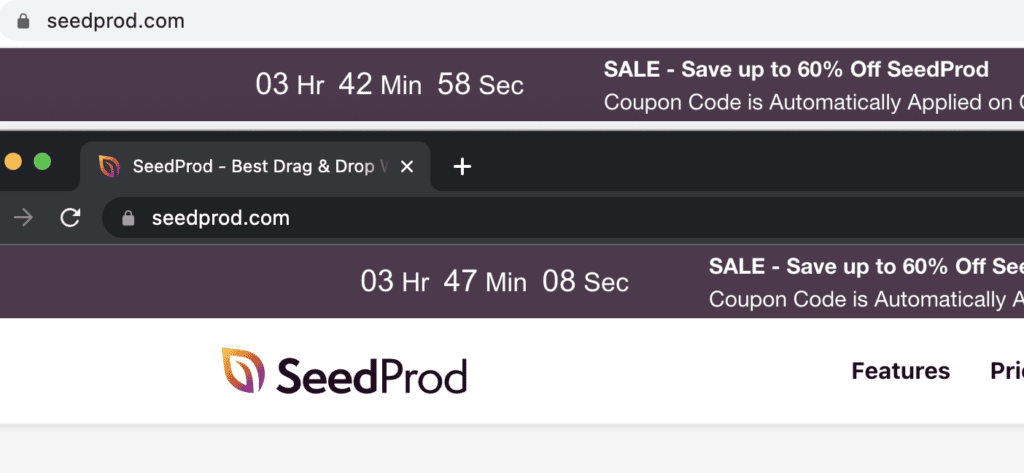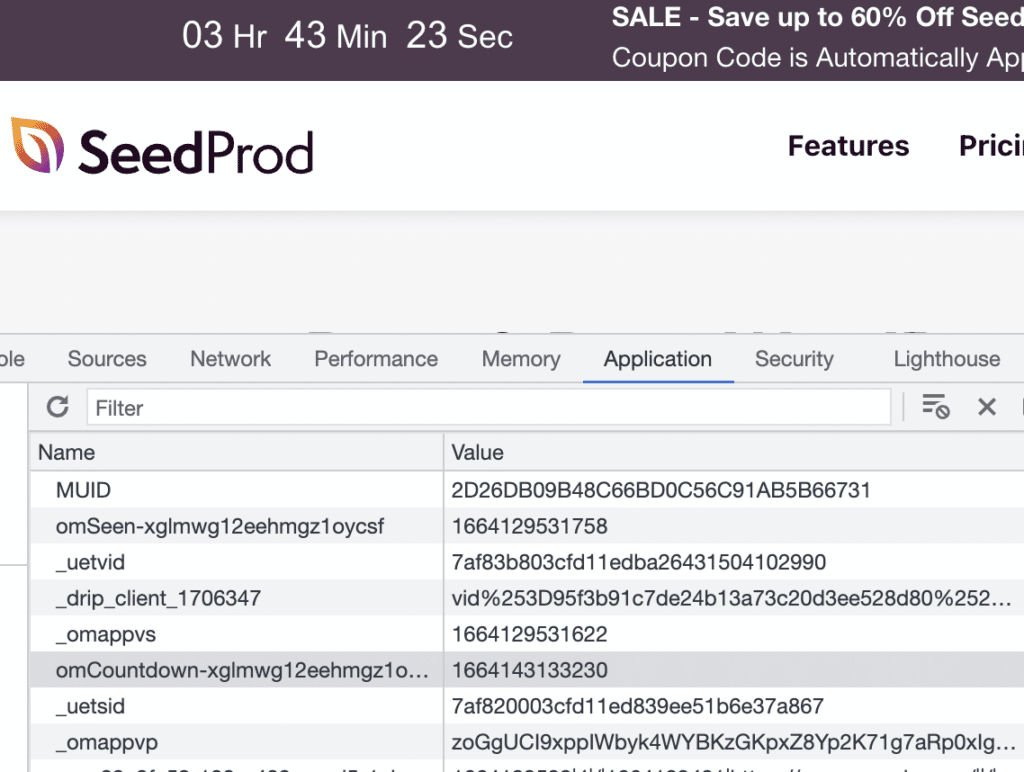A few weeks back, I started exploring the question of whether WordPress plugins are doing “fictitious” sales – that is, advertising a “normal” price anchor at which the plugin is never actually sold. This practice has burned retail companies like JCPenney, which paid a $50 million settlement in a class-action lawsuit accusing the company of advertising fake markdowns.
My pricing investigation is still ongoing, but today I want to touch on a related idea that is both less legally worrisome and more obvious – the use of meaningless countdown timers on sales pages.
Of course, countdown timers do make sense in some situations – like where there is actually an event happening or sale ending on a certain date. For example, I am doing an amazing live workshop on creating retainers for your WordPress clients on October 11 – you should join because it really is happening on that day!
In the case of the timer Daniel noticed and tweeted about, though, it does not appear to actually count down to anything. In fact, upon closer inspection, it does not even say the sale ends after the time elapses – it is just a timer hanging out next to a coupon with no official association between the two. We know that urgency increases sales, and this design choice positions a timer that looks “urgent” next to a coupon, which is something that the user might assume will “expire.”
[midroll_1]
Let’s dig into the code
I was curious exactly what was happening here, so I dug into the code by looking at the public front-end source and cookies.
As of this writing, the timer appears to always starts at 3 hours, 47 minutes and 22 seconds when you establish a new session. You can see this in the screen below, where I put a normal window and an incognito window right next to each other. The timers are off by the amount of time I waited to open the second session.

If you reload either of these individual windows, though, your countdown continues as if there is actually a specific time in the future when something will happen. This is because the site puts a cookie in your browser that contains the Unix Timestamp of your first visit. Here’s what this looked like when I inspected cookies in my browser:

The result of this code is that when a user navigates between or refreshes multiple pages, they will get the sense that the clock is ticking toward some future expiration date. Of course, the site is not making a false claim – it is just putting a timer on top of the site that doesn’t correspond to anything! I am not sure the Federal Trade Commission is going to bust down anybody’s office door over this one, but it’s certainly a confusing experience.
Since this has been called out publicly a number of times by others, I don’t expect much in the way of an official response – but if I were able to ask the folks who built this site a few questions, here’s what I’d ask:
- Why did you put a timer on your site that always starts at 3:47:22 and thus counts down to nothing?
- What are the results of a split-test where you do not show this timer to users? Does the timer appear to increase sales?
- If you went to JCPenney and there was a fake timer next to a sale price on your favorite article of clothing… would you think that was an honest or dishonest marketing practice?
- Do you think that having a timer that counts down to nothing violates the WordPress plugin guideline that requires that “Developers and their plugins must not do anything illegal, dishonest, or morally offensive“?
There are lots of great products in the WordPress ecosystem – I even use the one referenced in this article! I’d love to hear an explanation as to whether the decision-makers at WordPress.org and the owners of this plugin think that a “countdown to nothing” is an honest and acceptable marketing practice. To me, it does not seem like it is in line with the goals, ethics or rules of the WordPress project.
[midroll_2]


